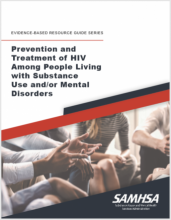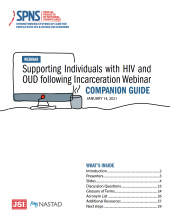
Language is foundational to how we understand and interact with ourselves and others. Unclear language can lead to confusion and inefficiencies, while stigmatizing and prejudicial language leads to harmful practices and dehumanizes people.



Language is foundational to how we understand and interact with ourselves and others. Unclear language can lead to confusion and inefficiencies, while stigmatizing and prejudicial language leads to harmful practices and dehumanizes people.
Building on last month’s episode about providing HIV and substance use care for people who are incarcerated, this month the Boston Medical Center Team talks with Dr.
Navigating the HIV and substance use systems of care presents a number of unique challenges, many of which can become more complex depending on a person’s housing, employment, mental health, or economic situation.
This month’s Connecting Care episode discusses the impact of structural racism at the intersection of HIV and OUD care and opportunities to think outside of the box to effect change.
The HIV and OUD Service and Funding Matrices Template supports state health departments in identifying opportunities for enhanced coordination between HIV and OUD funding and service provision.
For Boston Health Care for the Homeless nurse Megan Sonderegger, providing client-centered care means literally meeting her clients where they are.
There are so many factors that impact adherence and health outcomes. During this Connecting Care podcast, Drs. Alex Walley, Jessica Taylor, and Sim Kimmel discuss HIV prevention and treatment among people who inject drugs.
This webinar companion guide provides information for the January 2021 Strengthening Systems of Care: Supporting People with HIV and Opioid Use Disorder following Incarceration webinar.